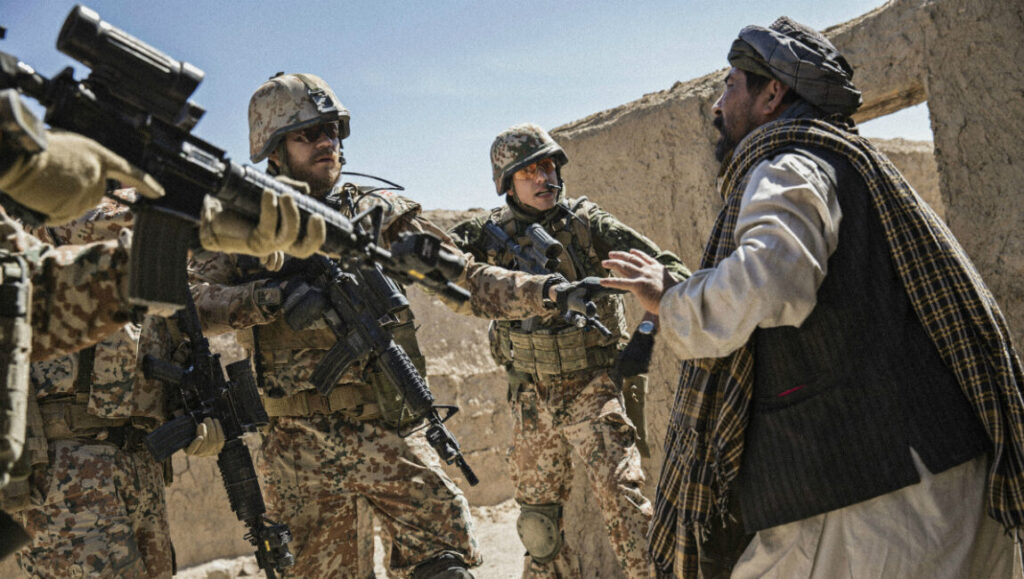In Tobias Lindholm’s A Hijacking, the filmmaker staged a Somali pirate hostage negotiation in real time. The film was all business, keeping any opinions about morality and politics close to the vest until its third act twist. Lindholm’s latest, A War, eschews laser-focused attention for quiet contemplation, and with it, a lot of dead air. It follows Commander Pedersen (Pilou Asbaek, recognizable from A Hijacking, as well as Borgen and Game of Thrones) and his company at a Danish outpost in the Kurdish region of Afghanistan. Morale is low, so Pedersen decides to start accompanying his troops on their various scouting missions. The beats during these scenes have a quiet fascination—few films allow us to see troops deal with the day-to-day tedium of working with villagers (as opposed to violent skirmishes). But A War’s real agenda is to put moral decision-making right at the forefront. The film poses complex situations without easy answers, but Lindholm has no interest in actually exploring them than simply presenting them.
The director shoots his soldiers daily tasks with a typical handheld style, stretching the pauses between dialogue to let audiences contemplate the choices he makes. This rhythmic tedium follows suit in the minimalist score, droning on as a reminder of the film’s evenhandedness. Lindholm shoots the two major action sequences here with intensity but without precision: loud, anonymous sound effects, shaky cameras without compositions, rapid editing without any spatial coherence. Compared to the more thrilling and specific (if problematic) depiction of military combat in Michael Bay’s 13 Hours, A War cannot help but feel rather lazy. Meanwhile, the film follows Pedersen’s wife (Charlotte Munck), as she deals with the responsibility of raising three kids back home. In a nice twist, the calls between husband and wife focus on harmonious communication rather than reveling in a discordant marriage. But most of that subtlety unfortunately runs dry by the film’s gear-shifting second half.
A War’s real agenda is to put moral decision-making right at the forefront. The film poses complex situations without easy answers, but Lindholm has no interest in actually exploring them than simply presenting them.
Lindholm’s film eventually shifts away from the action in Afghanistan to the procedures of a military tribunal, where Pedersen is put on trial for a hasty decision made in the thick of a thorny combat situation. The sleek cleanliness that characterizes this part of the film might make for an interesting exercise in compare and contrast, but A War‘s dialogue unfortunately tends toward the banal in dealing with the case itself. Lindholm stacks the narrative deck here—the only revelation to be made is that war is morally ambiguous, a sentiment expressed with maximum tedium. It would help if the filmmaker had the performances feel less plainspoken or gave the film more adrenaline through the camera, but the reserved choices turn into monotony. The film shows no effort to avoid taking sides, but it stakes itself in the worst kind of attitude: a general ambivalence without any stake in specifics. It’s a film meant to leave you thinking, if only because it has nothing to think about itself.

